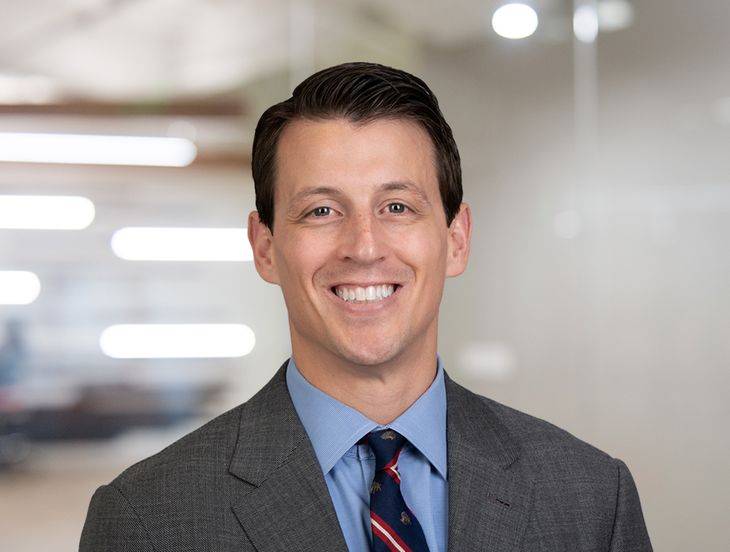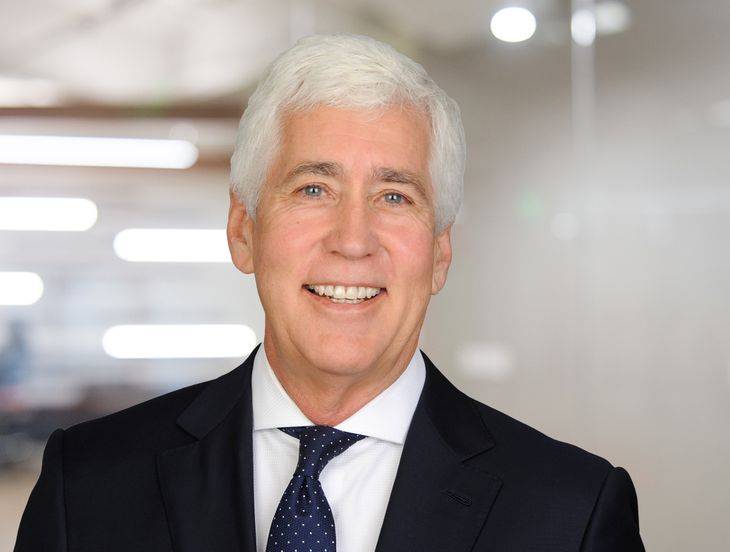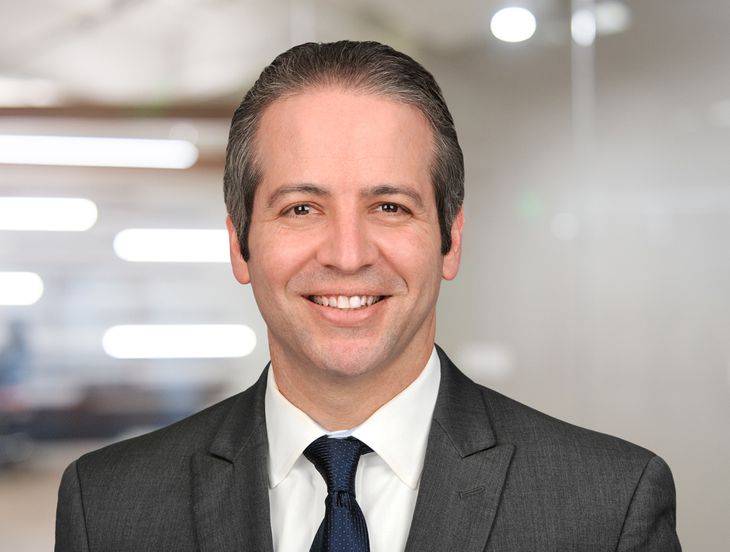WEB EXCLUSIVE - April 2018: The Top 19 Labor And Employment Law Stories
Insights
5.01.18
It’s hard to keep up with all the recent changes to labor and employment law. While the law always seems to evolve at a rapid pace, there were an unprecedented number of changes all through 2017. And if the first four months of 2018 are any indication, things won’t be slowing down anytime soon.
In fact, there were so many significant developments taking place during the past month that we were forced to expand our monthly summary well beyond the typical “Top 10” list. In order to make sure that you stay on top of the latest changes, here is a quick review of the Top 19 stories from last month that all employers need to know about:
-
- Labor Board Poised To Even Playing Field Once Again – With the Senate’s confirmation of John Ring to the National Labor Relations Board on April 11 and the administration’s subsequent announcement on April 12 that he will be designated as the agency’s Chair, the Board is once again in a position to restore balance to the nation’s labor laws. During most of the eight years of the Obama administration, the Board was stocked with a majority of Democratic appointees, and the NLRB issued decision after decision tilting the playing field decidedly in favor of unions and workers. However, now that the NLRB has a full complement of five members, three of whom were nominated by President Trump, changes are soon to follow. What do employers need to know about this latest development? (read more here)
- Contractor Apocalypse: California Supreme Court Adopts Broad New Misclassification Test – In a groundbreaking decision, the California Supreme Court adopted a new legal standard on April 30 that will make it much more difficult for businesses to classify workers as independent contractors, drastically changing the legal landscape across the state. The decision will directly affect the trucking and transportation industry because the workers involved in the case were delivery drivers, but also has the potential to affect nearly every other industry—including the emerging gig economy. Specifically, the court adopted a new standard for determining whether a company “employs” or is the “employer” for purposes of the California Wage Orders (read more here).
- Supreme Court Gives Dealerships The Green Light: Service Advisors Are Exempt From FLSA Overtime Requirements – The Supreme Court handed auto dealerships—especially those on the west coast—a long-awaited 5-4 victory on April 2 by holding that service advisors are exempt from the Fair Labor Standards Act’s overtime-pay requirement because they are “salesm[en]...primarily engaged in... servicing automobiles” (Encino Motorcars, LLC v. Navarro). The ruling returns the law to the place it had been for decades prior to a stunning and controversial 2011 agency decision that upended what had been standard practice at many dealerships. The Supreme Court’s ruling brings finality to a legal battle that had contained more twists and turns than a Formula One race track, including two separate trips to the Supreme Court by a dealership represented by attorneys from the Fisher Phillips Automotive Dealership Practice Group (read more here).
- Appeals Court Says Salary History Can’t Block Equal Pay Act Claims – In a landmark decision that will accelerate the growing pay equity movement, especially for employers on the west coast, the 9th Circuit Court of Appeals became the latest federal court of appeals to rule that employers cannot justify a wage differential between men and women by relying on prior salary. By tightening the language contained in the Equal Pay Act, the 9th Circuit made it more difficult for employers to justify pay differentials and defend pay equity claims. The April 9 ruling is a wake-up call for all employers to ensure their compensation structures do not unfairly limit the amount of money women earn at their organizations (read more here).
- New Jersey Becomes Latest State To Pass Equal Pay Legislation – New Jersey became the latest state to mandate a comprehensive equal pay law when Governor Phil Murphy signed the “Diane B. Allen Equal Pay Act” into effect on April 24, 2018. What makes this law different and more robust than laws in other states is that the New Jersey equal pay law will soon extend legal protections beyond gender and provide relief to all classes of employees protected under the state’s antidiscrimination law. New Jersey’s existing wage and hour law already prohibits employers from “discriminat[ing] in any way in the rate or method of payment of wages to any employee because of his or her sex.” The new law, which will take effect on July 1, 2018, expands this protection and amends the New Jersey Law Against Discrimination to make discrimination in wages on the basis of any protected class an unlawful employment practice. With the new law soon taking effect, you need to carefully analyze your existing pay practices to ensure compliance (read more here).
- Another Misclassification Win For Gig Economy Businesses – In another victory for gig economy companies reliant upon the independent contractor business model, a Pennsylvania federal court ruled on April 11 that a collection of UberBLACK drivers were properly classified as contractors and could not maintain wage and hour claims against the ride-sharing company. Here are the top 10 things you can glean from the Razak v. Uber Technologies decision (read more here).
- And the H-1B Goes To … USCIS Completes the FY2019 Annual H-1B Lottery Selection Process – Were you one of the lucky few to “win” one of the 85,000 H-1B visa numbers in this year’s random selection process held by the U.S. Citizenship and Immigration Services (USCIS) lottery? The USCIS held its annual lottery drawing on April 11 to pick the congressionally mandated 65,000 Bachelor’s cap and 20,000 Master’s cap petitions that will be processed this year for the 2019 fiscal year. The agency will begin sending out receipt notices for the selected petitions. As in years past, the USCIS will reject and return all unselected petitions with the uncashed filing fee checks. The agency announced that it received 190,098 H-1B petitions during the 2018 lottery application period. This is the second year in which we have seen a decline in the number of H-1B petitions submitted under this annual lottery process (down from 199,000 in FY2018 and 236,000 in FY2017). This downward trend may represent a reluctance by U.S. employers to invest in foreign workers, perhaps due to increased visa costs, security concerns, and concerns about the future of immigration legislation under the Trump administration (read more here).
- Department Of Labor Resurrects Opinion Letters – As promised by the new administration, the U.S. Department of Labor (USDOL) revived the practice of issuing opinion letters to enable employers to better understand their obligations under the Fair Labor Standards Act (FLSA). On April 12, the USDOL published opinion letters—on the topics of rest breaks, travel time, and garnishments—for the first time since 2009. While the FLSA is often too cumbersome to be tied up in a nice and neat opinion letter, it is encouraging to see the USDOL provide some measure of guidance to help employers avoid violations (read more here).
- New York State Employers Face Significant New Sexual Harassment Laws – Employers operating in New York will soon face a raft of new sexual harassment laws. The state budget bill for the 2019 fiscal year approved by the New York State Legislature on March 31 and signed into law by Governor Andrew Cuomo on April 12 contains a host of significant provisions to strengthen the state’s sexual harassment laws. As previously reported, the New York State Senate passed a bill last month aimed at strengthening and reforming the state’s sexual harassment laws. Now, through the 2019 budget bill, many of these provisions have become the law of the land—along with additional requirements beyond those contemplated by the Senate’s bill. For employers in New York City, these new laws are in addition to recently enacted legislationincreasing sexual harassment protections citywide (read more here).
- Gig Worker’s Hopes Of Arguing Case In Court Are Dashed By Arbitration Agreement – A delivery driver for gig economy company DoorDash has been ordered by the 5th Circuit Court of Appeals to take his misclassification case to a private arbitrator instead of court pursuant to a valid arbitration agreement he entered into. The April 25 decision is a solid win for gig employers and could provide a template for how other similar businesses should structure their own arbitration agreements (read more here).
- NYC Lawmakers Aim To Curb Sexual Harassment With Sweeping Legislation – On the heels of the #MeToo and #TimesUp movements, the New York City Council passed a slate of legislation on April 11 aimed at preventing sexual harassment in the workplace. Entitled the “Stop Sexual Harassment in NYC Act,” the package of 11 separate bills is the first major legislative initiative undertaken by new City Council Speaker Corey Johnson. The bills confirm that New York City is looking to be a leader as jurisdictions everywhere grapple with combatting sexual harassment in the workplace. Mayor Bill de Blasio is expected to sign the legislation into law in the very near future. Once signed into law, the Stop Sexual Harassment Act will significantly expand the obligations of New York City employers to prevent sexual harassment. What do you need to know to prepare for these laws? (read more here)
- Court Rules That Disclosure Of Trade Secrets Not Necessary To Violate DTSA – Many defendants attempt to defend claims for trade secret misappropriation by claiming that they never used or disclosed the information in question. Based on an April 5 ruling by a federal district court in New York, however, that may not matter. In AUA Private Equity Partners, LLC v. Soto, an employer filed suit against one of its former employees, asserting claims for trade secret misappropriation under the Defend Trade Secrets Act (DTSA), the federal law enacted in May 2016. The employer alleged that shortly before her termination, the employee uploaded files containing confidential and proprietary business information from her company-issued laptop to her personal cloud storage account on Google Drive. The employee moved to dismiss the employer’s DTSA claim on grounds that the employer did not allege that she ever used or disclosed the files, only that she acquired them. The court rejected the employee’s argument, finding that neither “use” nor “disclosure” was a required element of the DTSA claim (read more here).
- Spring Is In The Air! But Telling Your Employees You Love Them Could Cost You $5 Million – 19th-century British poet Alfred Tennyson once said, “In the Spring, a young man’s fancy lightly turns to thoughts of love.” And while you might hold a certain amount of affection for your employees this time of year and want to show them how much you care, you might want to refrain from saying “I love you” to them. That’s because an employer who did just that, and encouraged its workforce to share the same sentiments with coworkers on a regular basis, learned the hard way that such comments are not necessarily appropriate for the workplace.
On April 25, a federal jury in New York delivered a $5 million verdict against that employer in part because of this peculiar workplace practice. Read on to learn more about what happened and to avoid falling into the same trap this spring (read more here). - Second Time’s The Charm: Court OKs Revised Pay Equity Class Action Against Google – A California state court just breathed new life into a class action lawsuit against Google that could have a significant impact on pay equity claims across the country. The recent ruling gave the stamp of approval to an amended complaint filed by former female Google employees alleging unequal pay practices. The court ruled that the amendments, which focused on Google’s supposed uniform pay practices, were sufficient to meet the pleading standard and state a cause of action for a class-wide unequal pay claim (read more here).
- Don’t Go Overboard with Overbroad Non-Competes: Illinois Federal Court Strikes Down Non-Compete Clause – A federal court in Illinois recently found that a non-compete clause that restricted a departing employee from being connected in any manner “with the ownership, management, operation or control” of any business in competition with his former company was improperly overbroad. The April 17 decision presents a good lesson regarding the recommended scope of restrictive covenants and good drafting techniques (read more here).
- NY Governor Wants Employers to Say No to Salary History – On April 10, Equal Pay Day, New York Governor Andrew Cuomo unveiled proposed legislation banning all employers in New York from asking job applicants about their salary history. The legislation is aimed at closing the gender wage gap in New York. The proposed legislation would prohibit New York employers from asking about the salary history of a job applicant or relying on salary history in determining whether to make a job offer to that applicant or what salary to offer the applicant. If the applicant voluntarily and without prompting discloses their salary history, the employer would be permitted to consider that information. Additionally, employers would not be restricted from discussing the candidate’s expectations or requirements for salary, benefits and other compensation (read more here).
- Proposed California Law Would Establish Portable Benefits For Gig Companies And Address Misclassification Issue – As we have previously discussed, one of the hottest gig economy issues to dominate political and public policy debate has been “portable” benefits – the concept that gig economy workers should have flexible, portable benefits that they can take with them from job to job. States and local governments are increasingly moving forward on their own with proposals to explore the provision of benefits to individual performing work in the gig economy. Most notable are proposals that have been set forth in the state legislatures in Washington, New York and New Jersey. The movement also got a boost in January when Uber and SEIU announced a joint call for the state of Washington to develop a portable benefits system that would cover gig economy workers. Not to be outdone, California recently entered the discussion with the introduction of legislation that would establish a portable benefits system for “digital marketplaces.” Notably, the California proposal would also provide that individuals that provide services through such a digital marketplace would be “treated as” independent contractors (read more here).
- Westchester County (NY) Prohibits Salary History Inquiries – Westchester County has enacted a Wage History Anti-Discrimination Law which will soon make it illegal for employers to ask potential employees their salary history. The law was passed by the County Board of Legislators on April 9 and signed into law by County Executive George Latimer the following day. It will take effect July 9, 2018. Under the new law, employers will be prohibited from asking job applicants their salary history or relying on the applicant’s salary history in determining the salary to offer the applicant, unless it is voluntarily provided by a prospective employee to support a higher wage than that offered by the employer. Employers will no longer be permitted to ask the applicant’s current or former employer for the salary history of the applicant, unless an employer is seeking to confirm wage information after a candidate voluntarily discloses it to support a higher wage than that offered by the employer. In these circumstances, written authorization must be obtained from the applicant before seeking confirmation (read more here).
- Fear And Trade Secrets On The Campaign Trial: Demoractic National Committee Files Trade Secrets Lawsuit – The Democratic National Committee filed a lawsuit against Russia, WikiLeaks, the Trump Campaign, and a bunch of individuals (including Julian Assange, Jared Kushner, and a hacker named “Guccifer 2.0”) that includes claims of trade secret violations. The April 20 lawsuit alleges an alphabet soup of claims—CFAA, SCA, DMCA, RICO, among others—mostly based on the premise that Russian operatives successfully hacked the DNC’s computers, stole politically sensitive information, and then destabilized the American political system in conjunction with the Trump campaign and WikiLeaks (read more here).
If you have any questions about these developments or how they may affect your business, please contact your Fisher Phillips attorney.
This Legal Alert provides an overview of specific legal developments. It is not intended to be, and should not be construed as, legal advice for any particular fact situation.
Related People
-
- Steven M. Bernstein
- Regional Managing Partner and Labor Relations Group Co-Chair
-
- Colin P. Calvert
- Partner
-
- Melissa Camire
- Partner
-
- Benjamin M. Ebbink
- Partner
-
- Corey J. Goerdt
- Director of Pro Bono & Community Engagement
-
- Karl R. Lindegren
- Partner
-
- Richard R. Meneghello
- Chief Content Officer
-
- Ashton M. Riley
- Partner
-
- Todd B. Scherwin
- Regional Managing Partner
-
- Shanon R. Stevenson
- Partner
-
- Sarah Wieselthier
- Partner
-
- Megan C. Winter
- Regional Managing Partner











